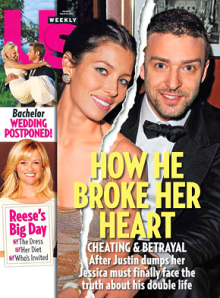Almost as much as I am fascinated by memory and by man’s search for meaning, I am insanely curious about secrets. I’m fascinated by why we keep secrets, and what happens when they’re exposed.
But I am also very, very afraid of them.
Not just mine. And what may happen if and when they are revealed.
But yours.
Your secrets scare me, too.
I’m deathly afraid of the unknown.
Of the uncertainty of what you might someday show or tell me.
Will it hurt me? Change my beliefs about you? About people? Will your secrets make me sick to my stomach?
Knowing how scared I am of your secrets makes me desperately want to keep mine safe from view.
* * *
What I mean by secrets:
The things we think at 3 am
The feelings we feel, but hardly ever show or share
The desires we have that we’re certain we’d be tarred and feathered for if we were found out.
All the thoughts we’re certain will cause people to stop loving us (or never love us at all). Never hire us. Immediately fire us. Look down upon us with condemnation, ridicule. Worse, stop looking at us at all.
This is what I think will happen when I think about sharing my own secrets. And maybe I’m right. Certainly some of them, if shared, would bring about moderate to severe consequences.
But not all of them. Some would liberate me. I just know it.
And yet, I keep silent.
* * *
I’ve had conversations with friends, acquaintances who insist they have no secrets. As if the keeping of secrets is scandalous in and of itself.
They insist even harder when I push them that their boyfriend/spouse/partner certainly keeps secrets. No way, many of my friends have said to me.
“He’s a regular guy. What secrets could he possibly have?”
I try not to smile an arrogant smile. Though sometimes, depending on my mood, I’ll argue the point.
We all have secrets.
Especially the regular guys.
Not all our secrets are Melrose Place-worthy; not all of them would necessarily damage our reputation; or disrupt our lives if revealed. But they are secrets nonetheless, and they weigh on us.
Some are low-spoken whispers in the inner ear:
“You’re stupid.”
“This will never work.”
“You’re doomed.”
“He doesn’t really love you. He never did.”
“If she really knew, she’d never speak to me again.”
Some secrets are roadblocks. Others are dams holding back figurative flood waters.
Some secrets are background noise. Garbled truths we never quite admit to, but haunt us.
Some are stories we’ve told ourselves so long we no longer recognize them as secrets. We believe they are real.
Everyone knows already, we think to ourselves. Why bother sharing them?
But they don’t know.
Or they do, but they need you to say it out loud.
“Nothing,” writes Paul Tournier, “makes us so lonely as our secrets.”
* * *
The best of what’s been written on Philip Seymour Hoffman’s death by drug overdose was Tom Junod’s op-ed in Esquire magazine. In trying to capture what drew us all into Hoffman’s character roles, Junod writes:
He held up a mirror to those who could barely stand to look at themselves and invited us not only to take a peek but to see someone we recognized.
When Hoffman died of a drug overdose, I was sick to my stomach. His secret made me sick. I won’t deny it.
The thought of him there in the bathroom. The thought of his wife; his children left behind. The shame. All the shame.
But within hours, my sick turned to compassion. To understanding. To love for someone I never knew.
Secrets are funny creatures. They soften and sweeten us in a way.
Not all of them, but maybe most of them.
Allowed into the light, liberated secrets prove not to be little monsters. But offspring of the human condition.
More commonplace than we realize.
In fact, there is a gift in the reveal of secrets. For sharing them shows others they’re not alone in their suffering.
* * *
This is what I do here, with you.
I liberate my secrets … a little.
I do it under my own name — on purpose.
I dare myself.
I work my “brave muscle.”
And most days, you are kind in return.
Proving my hypothesis. Allowing me to creep closer to freedom.
I hope I offer you some relief in return.
I hope you feel a little less alone.


 ow and Martin might be trailblazers. Better coverage of “conscious” uncoupling than the ugly divorces we normally expect from Hollywood.
ow and Martin might be trailblazers. Better coverage of “conscious” uncoupling than the ugly divorces we normally expect from Hollywood.

